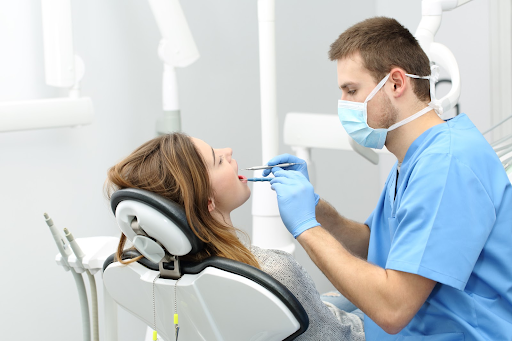Maintaining good oral health is not just about regular brushing and flossing; it also involves preventive dental care to ensure long-term wellbeing. For many, visiting the dentist can be a daunting experience, often triggering anxiety or fear. This apprehension sometimes prevents individuals from seeking necessary dental treatments, which can ultimately compromise their oral health. To address these concerns, Sedation Dental Treatment has emerged as a valuable tool in modern dentistry, offering patients a comfortable and anxiety-free experience during preventive dental care procedures.
Understanding Sedation Dental Treatment
Sedation dentistry involves the use of sedatives to help patients relax during dental procedures. It is particularly beneficial for individuals with dental phobias or those undergoing complex treatments that may cause discomfort. There are different levels of sedation available, ranging from mild relaxation to deep sedation, depending on the patient’s needs and the nature of the procedure.
In the context of preventive dental care, sedation can make routine visits more comfortable and less stressful. Procedures such as dental cleanings, fluoride treatments, and routine check-ups can be completed more efficiently when the patient is relaxed, allowing the dentist to perform thorough examinations and treatments without causing undue anxiety.
Enhancing Patient Comfort and Compliance
One of the primary benefits of sedation in preventive dental care is its ability to enhance patient comfort and compliance. Many people avoid dental visits due to fear or anxiety associated with past experiences or anticipated discomfort. By offering sedation options, dental practices can create a more inviting environment, encouraging regular dental check-ups and treatments essential for maintaining oral health.
Patients who opt for sedation often report feeling more at ease during their appointments, which can lead to a positive cycle of improved oral health maintenance. When preventive care is accessible and comfortable, individuals are more likely to adhere to recommended treatment schedules, thereby reducing the risk of developing more significant dental issues in the future.
Managing Dental Anxiety Effectively
Dental anxiety is a prevalent issue that affects individuals of all ages. It can stem from various factors, including fear of pain, embarrassment about dental conditions, or simply the unfamiliarity of dental procedures. Sedation dentistry addresses these concerns by providing a calming experience that allows patients to receive necessary dental care without distress.
For preventive dental care, managing anxiety effectively is crucial to ensuring comprehensive oral health assessments and treatments. Regular check-ups enable dentists to detect early signs of dental problems such as cavities, gum disease, or oral cancers. With the aid of sedation, patients can undergo these examinations with reduced anxiety, facilitating more accurate diagnoses and timely interventions when needed.
Tailoring Sedation to Individual Needs
The versatility of sedation dentistry allows dental professionals to tailor treatments to meet the unique needs of each patient. Mild forms of sedation, such as nitrous oxide (laughing gas), are commonly used for routine procedures like cleanings and exams. These options induce relaxation without impairing the patient’s ability to communicate or recover quickly post-treatment.
For individuals requiring deeper sedation, especially for more invasive preventive procedures or those with severe dental anxiety, oral sedatives or intravenous (IV) sedation may be recommended. These methods provide a deeper level of relaxation and may be ideal for patients undergoing extensive treatments in a single visit or those with specific medical considerations.
Promoting Long-Term Oral Health
Ultimately, the goal of sedation in preventive dental care is to promote long-term oral health outcomes by overcoming barriers to treatment adherence and improving patient experiences. Regular preventive visits allow dentists to address minor issues before they escalate into more complex and costly problems. By integrating sedation into routine care, dental practices empower patients to prioritize their oral health without compromising their comfort or well-being.
In conclusion, sedation dental treatment plays a pivotal role in balancing comfort and health within the realm of preventive dental care. By mitigating anxiety and enhancing patient comfort, sedation enables individuals to undergo essential dental procedures with greater ease and confidence. As dental practices continue to evolve, the integration of sedation options underscores a commitment to comprehensive oral health management, ensuring that preventive care remains accessible, effective, and patient-centered.


